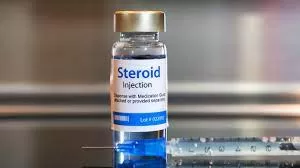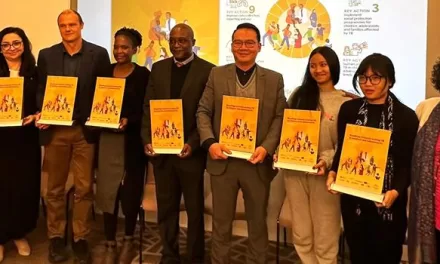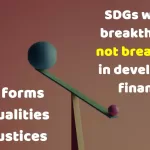London, UK – A groundbreaking new treatment, developed by doctors at Queen Mary University of London, Barts Health NHS Trust, and University College London, has the potential to revolutionize the management of a common yet often undiagnosed cause of high blood pressure. This innovative procedure, known as Targeted Thermal Therapy (Triple T), offers a minimally invasive alternative to traditional surgery, bringing new hope to millions of patients worldwide.
A Silent Culprit Behind High Blood Pressure
High blood pressure affects one in three adults, with a condition known as primary aldosteronism accounting for one in twenty cases. However, fewer than one percent of those affected are ever diagnosed. The condition is caused by tiny benign nodules in the adrenal glands that produce excessive aldosterone, a hormone that raises blood pressure by increasing salt levels in the body. Patients with primary aldosteronism often do not respond well to conventional blood pressure medications and are at higher risk of heart attacks, strokes, and kidney failure.
A Game-Changer in Hypertension Treatment
Until now, the only effective cure for primary aldosteronism was surgical removal of the entire adrenal gland, requiring general anesthesia, a hospital stay, and weeks of recovery. Triple T, however, provides a safer and quicker alternative by selectively destroying the small adrenal nodule without removing the gland. The procedure utilizes advanced diagnostic scans with molecular dyes to precisely locate the nodule, allowing targeted treatment.
This new approach harnesses the power of radiofrequency or microwaves to generate heat in a small needle inserted into the malfunctioning tissue, causing a controlled burn. With real-time ultrasound imaging, a tiny internal camera is guided into the stomach, enabling precise targeting of the adrenal gland. The entire procedure takes only 20 minutes, requires no incisions, and allows for immediate recovery.
Successful Trial and Promising Results
The procedure was tested in the UK through the FABULAS study (Feasibility study of radiofrequency endoscopic ablation, with ultrasound guidance, as a non-surgical, adrenal sparing treatment for aldosterone-producing adenomas). Conducted in collaboration with researchers from University College London, University College Hospital NHS Trust, Cambridge University NHS Trust, and the University of Cambridge, the trial involved 28 patients with primary aldosteronism.
Results showed that most patients had normal hormone levels six months after the procedure, and many were able to discontinue all blood pressure medications. One participant, Michelina Alfieri, shared her experience: “Before the study, I suffered from debilitating headaches for years. This non-invasive treatment provided an immediate recovery—I was back to my normal routine straight away.”
The Future of Triple T
Following the success of FABULAS, a larger randomized trial, called “WAVE,” is underway to compare Triple T with traditional adrenal surgery. The results, expected in 2027, could confirm the procedure’s effectiveness on a broader scale.
Professor Morris Brown, co-senior author of the FABULAS study and Professor of Endocrine Hypertension at Queen Mary University of London, emphasized the significance of the discovery: “We are now able to offer 21st-century breakthroughs in diagnosis and treatment, potentially transforming care for patients with curable hypertension.”
With further research, Triple T could soon be widely available in endoscopy units across the UK and internationally, reducing the dependence on long-term medication and improving patient outcomes.
Disclaimer: This article reports on early-stage medical research. While the findings are promising, further trials are required to confirm the safety and effectiveness of Triple T before it becomes a standard treatment. Patients should consult their healthcare providers for medical advice tailored to their individual conditions.











